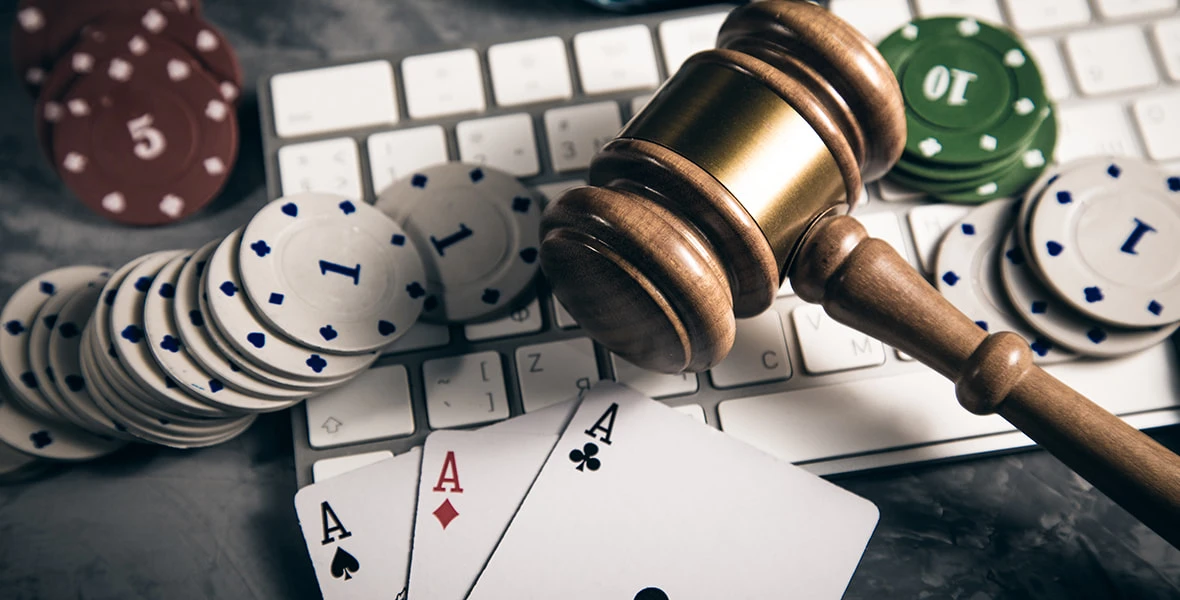How Does Norway’s Self-Exclusion System Work for Gambling
February 8, 2025 Tony ChristopherPlaying online can be very entertaining, yet it carries the risk of developing an addiction. Thankfully, Norway has a well-regulated gambling market, which offers a set of responsible gambling tools. One of them is self-exclusion, which can help you stop yourself from playing for a certain period. We’ll explore how it works and give you more insight on the topic.
Norway’s Gambling Regulations About Self-Exclusion

Gambling in the country is regulated by the Norwegian Gaming and Foundation Authority (Lotteri- og stiftelsestilsynet). The market is limited to two license owners, the state-owned Norsk Tipping and Norsk Rikstoto. Currently, there’s no national self-exclusion register, but operators are obligated to provide players access to this tool through their websites.
According to Section Nine of the Norway Gambling Act, licensed gambling providers are mandated to offer players the ability to either self-exclude or take a temporary break from gambling. The Act stipulates, “Providers of gambling that are subject to requirements for registered gambling must give players the opportunity to lock themselves out or take a time-limited break from gambling.”
It further specifies that players cannot terminate a break prematurely and that any self-imposed ban must remain in effect for at least one year before it can be lifted.
The Self-Exclusion System Explained
Operators in Norway must follow safe gambling practices and partner with organizations that support players in improving their habits. Since there is no national register yet, you should follow the instructions in the responsible gambling section of your chosen website and register for their programs.
Another possibility is signing up for services like Gamban, which is software that blocks online gambling websites worldwide. Whatever option you choose, here’s everything you need to know about the process.
Voluntary Self-Exclusion
In Norway, you can voluntarily sign up for self-exclusion. You have the option to disable your ability to play completely. This ban is permanent, meaning you cannot participate in any games you choose to exclude yourself from. You can do so online or at retail gaming locations.
How to Register
To initiate self-exclusion, visit your preferred gambling site. Log in to your players’ account and navigate to the responsible gaming section. Scroll through all available options and select self-exclusion. This process is straightforward – you need to choose the duration and confirm your choice.
Duration Options
The minimum period for self-exclusion from online gambling in Norway is one year. You can choose a longer period as well but remember you won’t be able to reverse this choice until a minimum of 365 days have passed.
Alternatively, you can take a break from playing, also known as a “cool-off period”. Its duration varies from 1, 7, 30, or 180 days up to one year. During this period, you can’t play the games you paused and can extend the duration of the break anytime. When it’s over, you’ll automatically have access to gambling again.
Supporting Tools and Resources
In addition to voluntary self-exclusion, Norwegian gambling sites offer various tools and resources to assist individuals. Among these, you’ll have access to:
- Setting deposit limits
- Spending limits
- Time reminders
- Access to professional counseling services
All legal gambling websites and apps provide helpful resources on problem gambling and how to recognize it. Some will ask you to complete a questionnaire or include links to helplines and responsible gambling organizations. Of course, you can also refer to customer support, and they’ll direct you where to seek professional support.
Conclusion
We hope Norway will soon advance efforts to innovate its self-exclusion system by establishing a central database. This database would allow players to register for exclusion from all gambling activities across different platforms through a single registration process and would streamline the current system.



